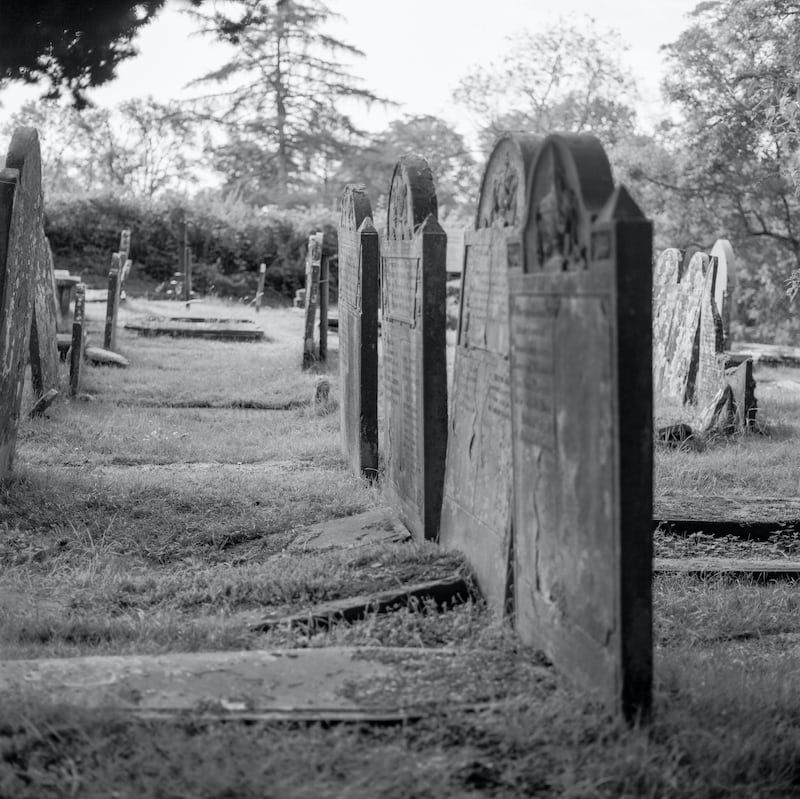Jim Gibson

My brother Dan and I pulled up to our next job, a chain-link fence repair in Weippe, Idaho. We found a doublewide, a carport, an old shed out back buried in firewood and lumber, and an ATV.
It was raining. We squinted through the windshield at the house. I rummaged in the back seat and pulled on an old raincoat and a wadded up felt hat and walked around the back of the house to remember what needed done.
Dogs, little yappers, set up a clamor inside the back door, and a minute later the door opened. I turned and saw immediately that we were in trouble. Hunched as I was in my ratty raincoat, hat low on my face, Jim, the old man of the house, did not know me and was now approaching at a menacing walk.
"Who are you?" This came in a low, measured growl. The dogs swarmed around me. I hit him with a burst of cheer and an easy flow of disarming chatter.
“Jim! How are you? I'm the fence guy, just walking around trying to remember what you need to have done...."
I stayed back, away from him, and his face softened slowly. "Oh, Oh...."
He was a small man, in good shape, and followed us around. He had things to say, things he wanted us to know. "Me and fifteen others went. Only nine of us come back."
"Oh?" I said.
"We was black ops. We didn't exist."
Dan and I had work to do. We kept moving. What do you say to war stories?
“We were for eliminating people.”
“I see,” I said.
“I had eighteen confirmed.”
I waited for the regrets of an old man, the realization that he had killed fathers, sons, and brothers.
“My longest shot was 1,200 yards. I hit him between the shoulder blades. My spotter says, 'Jim you're getting durned good with that thing.’” He chuckled at the memory.
We kept working.
"Only one was a woman. We was set up over a rice paddy, and she kept going into the brush and changing clothes. I said to my spotter 'You see that?' I hit her right over her backpack in the back of her head. I had eighteen confirmed, and she was the only woman."
He went inside. He came back out.
"We was black ops. We didn't exist. I was hell on wheels when I got back. Me and my brothers could clear out a bar of thirty people in minutes. And half of them went to the hospital. The sheriff told his deputies, ‘You wait until them Gibson boys come out of the bar. You don't go in until it's all over.’"
"War can really mess with a guy's mind," I said.
"I always told my wives, 'Don't touch me while I'm sleeping! You can talk to me, but don't touch me!' And the one wouldn’t listen. I'd get to dreaming and she reached over and touched me, and I about broke her neck." He chuckled fondly.
"All my friends and family is scared of me. They know not to come up behind me. I'll knock them right down."
"Did war make you a better man?" I asked. I had my opinion by now.
"I had nightmares," he allowed.
He'd go inside, then be back. "Eighteen confirmed" he'd say as an opener. Or, “We was black ops...”
There were people stealing his stuff. "Which is why I carry this," he said slyly. He held his raincoat open to show us the grip of a big handgun on his belt. “I held five kids at gunpoint for two hours that was stealing my stuff,” he told Dan. “But the cop that finally came wouldn't arrest them. Had no evidence, he said.” He sniffed in disgust at today's limp-wristed law enforcement. In his day there would have been scuffling and handcuffs, maybe beating and gunfire on a good day.
I wondered what became of the kids. Two hours at gunpoint by Jim Gibson would change anyone's life.
He told a story:
He is five years old. His Dad and brothers are haying on their ranch in southern Idaho. His older brother Merle is seventeen, on a buck rake, his Dad and others at the stack. A rabbit flushes from the windrow between the horses, and they bolt. Merle is thrown forward under the rake and rolled and beat along by the terrible tines of the rake. As the team thunders across the field, his dad sees the dust, the panicking horses, and the body of his son being raked to death. He runs to the truck, grabs the .30-.30, throws down across the hood and shoots the near horse. As the men run for the rake, the floundering team, and the dying Merle, one of them jumps off the stacker and runs a shard of wood into his leg behind the knee that comes out at his hip. They pull Merle from under the rake, find a saw and saw off the impaled man's shard of wood, lay them side by side in the truck bed and rattle off for the hospital.
“Merle didn't make it,” Jim said.
Dan and I are silenced by the story. It is incredible. That was his world, a tough, dusty world of hard work, men dying, fights and brutality. Vietnam came natural.
Who pays the highest price in war, the living or the dead? Jim? or number eighteen?